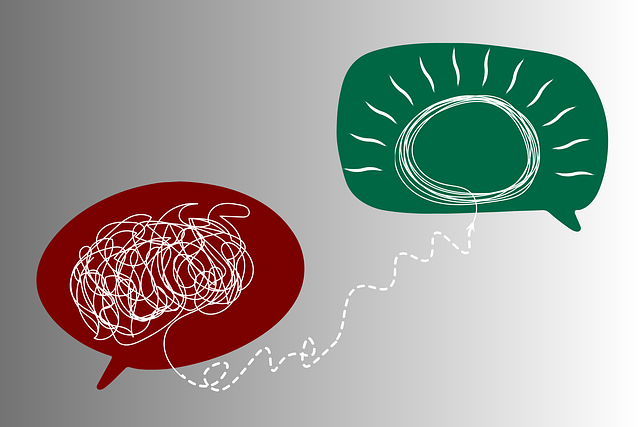Castle Rock Gender-Affirming Care Therapy (CRGACT) is a transformative process designed to build resilience in individuals exploring their gender identity. Using the Resilience, Flexibility, and Mastery (RFM) model, CRGACT focuses on boosting self-esteem, emotional well-being, and stress management. Through tailored techniques, it empowers clients to challenge negative thought patterns, foster self-awareness, and develop robust coping skills. The therapy incorporates mental wellness journaling, compassion cultivation practices, and communication strategies, recognizing that resilience is context-specific and influenced by cultural, social, and personal factors. Success is measured using structured assessments, including validated scales for stress level reductions and pre-post intervention comparisons, ensuring both subjective and empirical support for the therapeutic practices.
Resilience is a key component of well-being, especially in navigating life’s challenges. This article explores the powerful tool of RFM (Resilience, Flexibility, and Mastery), a framework that guides individuals towards building mental fortitude. We delve into the role of Castle Rock Gender-Affirming Care Therapy in enhancing resilience, highlighting its unique approach to nurturing strength. Through practical exercises, readers will discover strategies to identify and strengthen protective factors, ultimately designing personalized resilience-building programs. Learn how RFM techniques can be measured for effectiveness, offering a comprehensive guide to fostering adaptability.
- Understanding RFM: A Framework for Measuring Resilience
- The Role of Castle Rock Gender-Affirming Care in Building Resilience
- Identifying and Strengthening Protective Factors through Exercises
- Practical Applications: Designing Customized Resilience Building Programs
- Measuring Success: Evaluating the Impact of RFM Techniques
Understanding RFM: A Framework for Measuring Resilience

Resilience is a critical component of overall well-being, especially for individuals navigating challenging life circumstances. Understanding Resilience (RFM) provides a structured framework to measure and enhance this essential skill. Castle Rock Gender-Affirming Care Therapy (CRGACT) recognizes the importance of fostering resilience in its clients, incorporating techniques that promote self-esteem improvement and emotional well-being promotion.
The RFM model delves into three key dimensions: Resilience, Flexibility, and Mastery. By assessing and strengthening these areas, individuals can better manage stress, adapt to change, and resolve conflicts effectively. CRGACT’s therapeutic approaches include a range of Emotional Well-being Promotion Techniques and Conflict Resolution Techniques tailored to individual needs, enabling clients to build a robust foundation of resilience that supports them in all aspects of life.
The Role of Castle Rock Gender-Affirming Care in Building Resilience

Castle Rock Gender-Affirming Care Therapy plays a pivotal role in building resilience among individuals navigating their gender identity and expression. This therapeutic approach, rooted in understanding and validating personal experiences, equips clients with powerful tools to confront challenges related to depression prevention. By fostering an environment free from judgment, therapists facilitate the exploration of emotions, thoughts, and behaviors, enabling participants to develop robust coping skills.
The process focuses on cultivating mind over matter principles, where individuals learn to challenge negative thought patterns and beliefs. This shift in perspective empowers them to manage stress, anxiety, and depression effectively. Through various exercises, clients gain a deeper sense of self-awareness, enhancing their ability to make informed decisions regarding their mental health. As a result, they become more adept at navigating life’s twists and turns with resilience and grace.
Identifying and Strengthening Protective Factors through Exercises

Identifying and strengthening protective factors is a key aspect of building resilience, especially for individuals navigating challenging life circumstances. Exercises like Castle Rock Gender-Affirming Care Therapy offer a unique approach to fostering mental wellness by recognizing and cultivating inner strength and compassion. Through these therapeutic practices, participants learn to engage in self-care rituals that promote emotional well-being and resilience.
By incorporating compassion cultivation practices and mental wellness journaling exercises, individuals can explore their thoughts and emotions in a safe space. This guidance allows them to identify personal protective factors—be it positive relationships, coping mechanisms, or inner resources—that can help buffer against stress and adversity. With regular practice, these exercises empower individuals to build a resilient mindset, enhancing their ability to navigate life’s challenges with greater ease and grace.
Practical Applications: Designing Customized Resilience Building Programs

When designing customized resilience-building programs, it’s essential to consider the unique needs and challenges faced by individuals within diverse communities. For instance, Castle Rock Gender-Affirming Care Therapy (GACT) can play a pivotal role in fostering mental wellness among marginalized populations by offering tailored interventions. This approach recognizes that resilience is not a universal trait but rather influenced by cultural, social, and personal factors.
By integrating elements from Mental Health Policy Analysis and Advocacy, therapists can ensure these programs are inclusive and effective. Communication strategies, such as encouraging Mental Wellness Journaling Exercise Guidance, provide individuals with tools to process experiences and emotions. This proactive approach not only enhances individual resilience but also contributes to building a more resilient community that is better equipped to navigate life’s challenges, as evidenced by the transformative power of GACT in various settings.
Measuring Success: Evaluating the Impact of RFM Techniques

Measuring success when implementing RFM (Resilience-Focused Therapy and Coaching) techniques is paramount to evaluating their effectiveness in enhancing mental health. The impact of Castle Rock Gender-Affirming Care Therapy goes beyond mere anecdotal evidence; it’s crucial to quantify improvements in clients’ lives using structured assessments tailored to the specific goals of RFM. These evaluations should encompass changes in stress levels, as measured by validated scales like those used in Mental Health Education Programs Design, and shifts in communication patterns, gauged through pre-post intervention comparisons.
By integrating Stress Management strategies within RFM, therapists can objectively assess improvements in clients’ ability to cope with challenges. Communication Strategies, another key component, may be evaluated qualitatively and quantitatively through open-ended questionnaires and structured interviews, allowing for a nuanced understanding of how clients articulate their experiences and interact with others. This data-driven approach ensures that the benefits of RFM are not only subjective but also backed by empirical evidence, fostering continuous improvement in therapeutic practices.
Resilience is a key component of well-being, and the RFM (Resilience, Flexibility, and Mastery) framework provides an effective structure for measuring and enhancing it. As demonstrated by Castle Rock Gender-Affirming Care therapy, targeted exercises can identify and strengthen protective factors, leading to improved coping mechanisms. By designing customized resilience-building programs based on this model, professionals can empower individuals to navigate life’s challenges more effectively. Evaluating the impact of these techniques, such as those employed in Castle Rock Gender-Affirming Care Therapy, is crucial for refining and optimizing these programs, ultimately fostering greater resilience in diverse populations.










